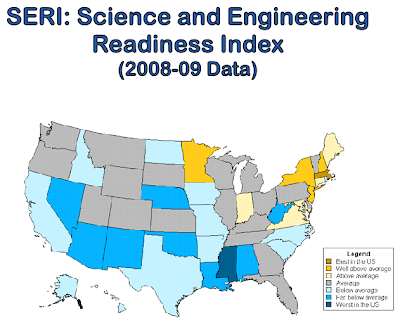As a teacher of intro astronomy here at CU, I have the privilege of seeing the math and science readiness of some of the best and brightest Colorado has to offer the world. While many of my students struggle with things like unit conversion and basic algebra, many are also able to apply calculus and even differential equations to astrophysical problems. So how science-ready are Coloradans? From the very smart folks at the AIP's Statistical Research Center, the answer is a resounding "average".
Looking at the map, it looks surprisingly similar to another map I recently saw of the distribution of minority populations in the US.
With the exception of West Virginia and Nebraska, all of the other states that rate "Far Below Average" or worse have large minority populations, and all of the states that rate "Far Above Average" except New York don't.
Additionally, another map looks pretty similar too, this one of the average income per household.
With the exception of California and Nevada (note that this is 2008 data so the full impact of the recession hasn't been included), all of the under-preforming states are green or blue, while all of the over-achievers are yellow or red, with the exception of Indiana and Maine.


